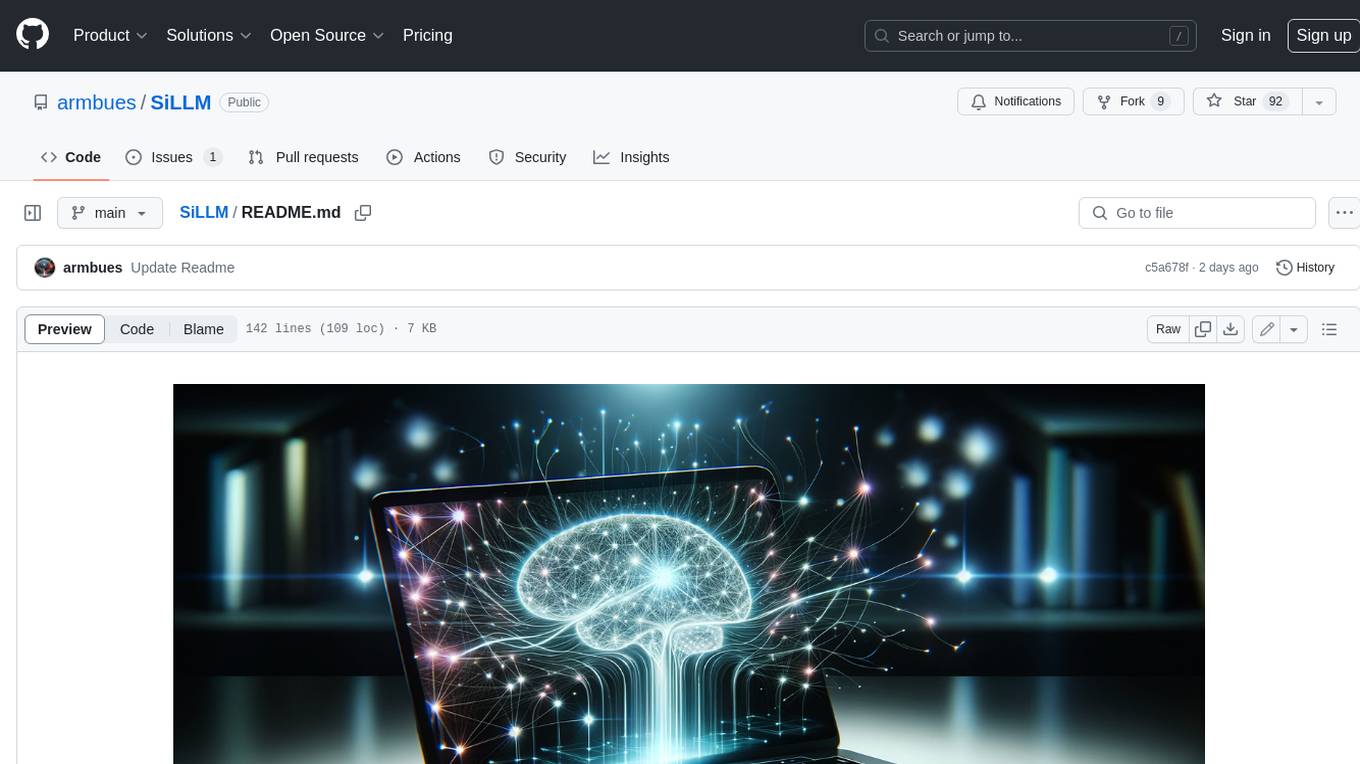Best AI tools for< Quantize Ai Model >
0 - AI tool Sites
No tools available
1 - Open Source AI Tools

SiLLM
SiLLM is a toolkit that simplifies the process of training and running Large Language Models (LLMs) on Apple Silicon by leveraging the MLX framework. It provides features such as LLM loading, LoRA training, DPO training, a web app for a seamless chat experience, an API server with OpenAI compatible chat endpoints, and command-line interface (CLI) scripts for chat, server, LoRA fine-tuning, DPO fine-tuning, conversion, and quantization.
github
: 257
0 - OpenAI Gpts
No tools available